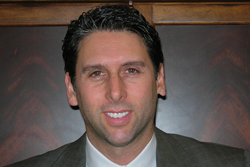What COVID-19 Causations Will Continue In 2021 And Beyond?

By Rob Wright, Chief Editor, Life Science Leader
Follow Me On Twitter @RfwrightLSL

Unprecedented.
That’s the word used ad nauseam to describe much of what we experienced in 2020. And while many of these moves were unprecedented at the time, now that they’ve been done, they now serve as a precedent. This makes you wonder just how many COVID-19 causations will continue into 2021 and beyond? Though we can’t predict them all, we do have some not previously shared perspectives from six biopharmaceutical company CEOs (as part of our special December Outlook issue). Here is what they have to say on the current administration’s unprecedented removal of regulatory hurdles toward accelerating the development of COVID-19 diagnostics, therapeutics, and vaccines, along with their thoughts on significant business lessons learned from operating in this unprecedented year.
We hope you enjoy this most recent Beyond The Printed Page installment, and invite you to subscribe to Life Science Leader today. Otherwise, who knows what all insight you might miss?
WHAT SIGNIFICANT BUSINESS LESSONS HAVE YOU OR YOUR COMPANY LEARNED FROM OPERATING IN 2020 THAT WILL LIKELY CARRY FORWARD FOR A NUMBER OF YEARS?
 ROBERT COBUZZI, JR., PH.D., CEO, DIFFUSION PHARMACEUTICALS
ROBERT COBUZZI, JR., PH.D., CEO, DIFFUSION PHARMACEUTICALS
The year 2020 has been a challenging and unpredictable for everyone. The economy was going well, and development programs were progressing — until March. Like most companies, the COVID-19 pandemic forced us to evaluate our development plans and adapt to the situation. We had to pivot and pursue a different indication, which thankfully was an option for our lead drug candidate. Through this, I am reminded that the business plans of nimble organizations always include “what-if” scenarios and relevant plans to address them. Further, these plans are typically a central theme for an annual board strategy discussion to ensure the best thinking and alignment. As seen with the COVID situation, it is impossible to accurately predict every scenario, but even having to adapt an existing plan is far easier than starting from scratch when the heat is on.
At the same, while formulating and socializing these “option plays,” it is critical to ensure compatibility with the mission and skills of the organization. Particularly for a small, development-stage company, like Diffusion, all options need to be synergistic with business operations. Divergence is not just a distraction; it is expensive in terms of money and time.
 EMIL KAKKIS, M.D., PH.D., CEO, ULTRAGENYX PHARMACEUTICALS
EMIL KAKKIS, M.D., PH.D., CEO, ULTRAGENYX PHARMACEUTICALS
Hire the very best people, no matter where they live. The pandemic has further reinforced the fact that location and commute should not be limitations on always seeking the best talent and learning to accommodate work needs and location. The COVID-19 acceleration factor shows us how much more effective we can be in driving work forward, running multiple parallel processes, and the power of efficient organizers (not just strategists) to biotech success. Another lesson is to be mindful of is how we can capture the urgency, creativity, and adaptability into the “routine” development of rare disease medicines. The patients we serve have the same risk of death and disability every year— pandemic or not. Finally, the efficiency of not commuting and not traveling dramatically alters our ability to participate in conferences and do business deals without needing to be in person. While the quality of the interactions may not be as good, the ability to reach, discuss, and negotiate on a faster time scale where travel schedules do not impact the plan, provides a better roadmap on managing many activities more cost and time efficiently, and with greater global reach.
 SAUNDRA PELLETIER, CEO, EVOFEM BIOSCIENCES
SAUNDRA PELLETIER, CEO, EVOFEM BIOSCIENCES
It is not enough to hire people based on good CVs or those who interview well. Instead, you must hire good humans who also happen to be qualified, because during times of crisis, those who are committed to the company mission will stay, and not just survive, but help the company thrive through hardship. Good humans are flexible, care about teamwork, and have stronger backbones than those just looking for a paycheck.
For us, creating all company updates that cover the top 10 critical business points for each month, keeps people focused on progress regardless of location. Further, highlighting a team or individual by sharing their interests outside of work, creates a connected corporate culture that can sustain change and threats. Simple, but very effective.
MANY DRUG DEVELOPMENT HURDLES HAVE BEEN REMOVED UNDER THE CURRENT ADMINISTRATION IN THE HOPES OF ACCELERATING COVID-19 DIAGNOSTICS, THERAPEUTICS, AND VACCINES. WHAT COULD BE SOME OF THE CONSEQUENCES AROUND AN ADMINISTRATION’S INVOLVEMENT WITH U.S. REGULATORY BODIES AND HEALTH PROTECTION AGENCIES IN 2021 AND BEYOND?
 EVAN LOH, M.D., CEO, PARATEK PHARMACEUTICALS
EVAN LOH, M.D., CEO, PARATEK PHARMACEUTICALS
COVID-19 has underscored the indispensability of our world-leading industry. Nevertheless, the high cost of innovation requires capital resources, mainly derived from investors and other private sources. Going forward, government support will be important to advance our mission, saving even more lives.
Public pressure for new vaccines and therapeutics places greater stress on regulators and companies to ensure, as always, that approved products are safe and effective. For products deployed on the scale of millions or even billions of exposures (i.e., vaccines and antibiotics), adverse events must be understood on a population scale, not just at the level of clinical trials. Our industry can never compromise on historical thresholds for safety and efficacy. If we do, patients’ will lose trust in the new technology and their acceptance of innovative new medicines and diagnostics will slow. Therefore, a thorough review of scientific data must remain the guiding light for evaluating new medicines. Risk/benefit assessments must be made by expert scientists, not administrators who have no experience with those decisions. It is not in anyone’s best interest for medical safety and efficacy decisions to be influenced by political considerations.
 ARMON SHAREI, PH.D., CEO, SQZ BIOTECH
ARMON SHAREI, PH.D., CEO, SQZ BIOTECH
I think this could be a make-or-break moment for the FDA. If it resists political pressure and sticks to the science before granting vaccine approvals, it will further cement its position as the foremost global authority on ensuring rigorous yet innovative drug development. If it caves to political pressure, it could undermine its credibility in the long run, set a precedent for lobbying (rather than science) driving approvals, and ultimately risk abdicating its position as the leader in adjudicating healthcare innovation.
 MICHAEL WEISS, CEO, TG THERAPEUTICS
MICHAEL WEISS, CEO, TG THERAPEUTICS
I don’t see much long-lasting effect. This effort was both medically urgent and politically expedient. The FDA has faced political pressure in the past, and they always have weathered the storms and maintained their scientifically robust process. The FDA over the years has embraced programs to accelerate the development and speed to market of drugs for unmet medical needs, and I believe they will continue to do so.
